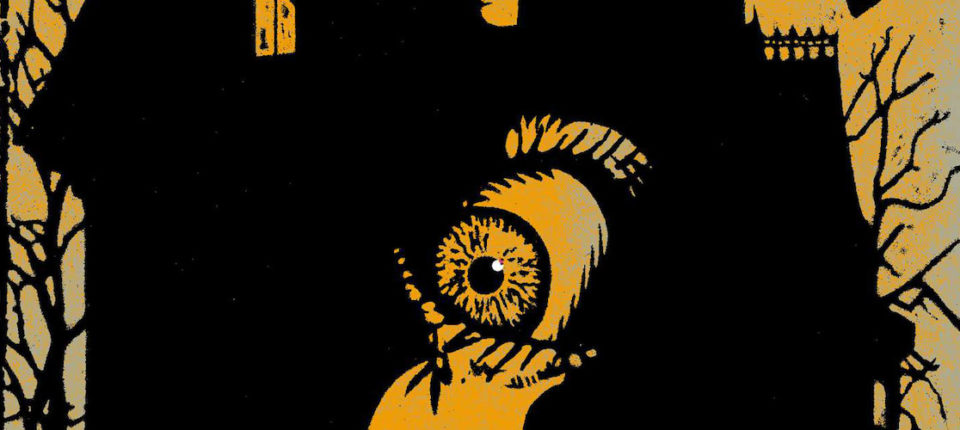Readers often say they like books about the supernatural because they stretch the borders of ordinary life, which seems to imply that “ordinary life” is pretty damn dull. This tends to ignore the fact that we live on a spinning ball made mostly of molten lava with a thin egg-shell of dirt and air and water that keeps that lava contained—barely—and that this spinning ball does not fly apart because it is held together by an invisible force called “gravity,” which everybody counts on and no one truly understands.
I believe that novels about “the supernatural” are stories that come ghosting out of the cosmic darkness beyond the edge of our known universe, and who knows what is lying out there in that infinite velvety night, with “lidless eyes and sleepless malice,” waiting for our earthly lights to flicker and go out. Well, in fact, somebody does know, and those somebodies write novels about The Supernatural.
So, in no particular order, here are my suggestions for the best writers to travel with, especially when you don’t know where you’re going but you really need to get there in style, usually just in time for everything to go all to Hell.

Susan Hill, The Woman in Black
Set in Victorian England, The Woman In Black begins as a solicitor arrives at an isolated mansion far out on the moors to wrap up the affairs of the Late Mrs. Drablow. The “sleepless malice” that lives in the darkened reaches of the house takes note, and with the inexorable and soul-crushing force of a python, closes in around him and begins to squeeze.
The malice of The Woman In Black arises from an ancient and terrible crime, and the sheer moral force of her righteous anger gives the book a brute force and a slicing edge that, combined with perfectly surgical prose, take the reader all the way to its terrible and profoundly satisfying end.
Brilliant, wish I’d written it.
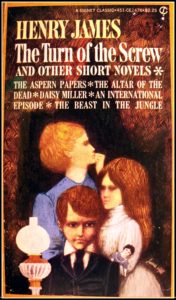
Henry James, The Turn of the Screw
The Turn Of The Screw is regarded as one of the finest stories of the supernatural that has ever been written, although no one has yet been able to decide whether this story of a Governess charged with the care of two very odd children in a cavernous and frightening old house is a tale of a malevolent haunting or a loving woman’s descent into homicidal madness.
James writes with moral ferocity, elegant simplicity and terrible power. The setting hums with crawling terror and the ambiguous ending leaves the reader twisting slowly on the gallows of a perfectly-wrought story.
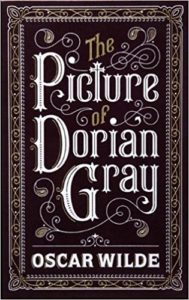
Oscar Wilde, The Picture of Dorian Gray
In The Picture Of Dorian Gray we encounter a Victorian “gentleman” who is blessed with money and beauty, and a portrait of him painted by a dear friend. But Dorian Gray has a dark side, and in the course of this short but unforgettable novel Gray finds himself drawn deeper and deeper into that darkness, ultimately wrecking his immortal soul. But none of this gathering evil is ever reflected in his handsome and ageless face.
This is not true of his portrait, however, which gradually alters itself to reflect what the inner man is actually becoming, a crawling fetid monster with dead eyes and a desolate heart.
Told as a kind of parable, my regard for this story arises partly from the power of a good story well-told and partly from my sympathy for Oscar Wilde. He may have seen much of Gray in his own troubled heart but his sense of honor and morality remained true, in spite of what a hypocritical nineteenth-century society managed to do to his heart and body.
Besides, how can you not love a man who, shortly before his death, says, “Either this wallpaper goes, or I do.”?
(And yes I know he didn’t say it quite like that, but so what? It’s one of those things that, even if it isn’t true, it ought to be!)

Lionel Shriver, We Need to Talk about Kevin
This stunning novel, which deals with a mother’s gradual realization that her oldest child may have a heart of darkness, unfolds as a series of letters written to her (apparently) estranged husband.
The story centers around a powerful question—where does evil come from—is it nature or nurture, character or curse? But it reads like a horror story with supernatural overtones, and while, technically, it may not belong in the pantheon of supernatural novels, it deals with the same horrors, the same kind of evil, and ends in a similar kind of self-inflicted hell.
Some writers are so good they are beyond my professional envy. I am only grateful that Lionel Shriver is on this planet and still writing books such as this unforgettable masterpiece.
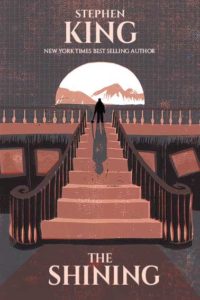
Stephen King, The Shining
There isn’t anything left to say about this shattering work that hasn’t been said by better writers than I. A deserted and evil-saturated hotel dug deep into the Rocky mountains as winter closes in, a troubled alcoholic writer, his wary wife and his gifted son, and the workings of pale-eyed fate that drives them all to the edge of madness, and for one man, right over and gone. If he had never written another book—God forbid—The Shining would still be, as Peter Straub said, “probably the best supernatural novel in a hundred years.”
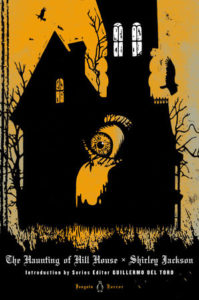
Shirley Jackson, The Haunting of Hill House
They made a movie of The Haunting Of Hill House and it was wonderfully ghastly and dark, but it’s Bambi Meets Godzilla compared to this profoundly layered and psychologically-astute book from one of the masters of this dark art. A varied cast of characters, including one lonely and abused single woman, are invited to a paranormal investigation of a “supposedly” haunted house. They get far more than they bargained for, but that’s only the top story—what lies beneath is the terrible void of spiritual loneliness, and the parasitical spirits that are drawn to that sweet and innocent need, like crows to a roadside death. The evil that lives in Hill House gathers around this lost soul and, in the end, swallows her alive. Like all good supernatural stories, this is at heart a struggle between good and evil.
In Hill House, evil always wins.
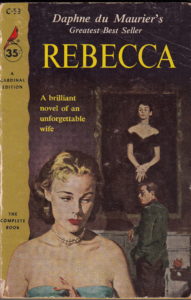
Daphne du Maurier, Rebecca
“Last night I dreamt I went to Manderly again.”
It was hypnotic and magical and deeply frightening … anyone who has married a person whose spouse has died mysteriously—and who of us has not?—knows the power of the one who is gone but cannot be forgotten. In my view one of the very best supernatural stories ever told. Again, wish I had written it, and if you all look away, I’ll claim that I actually did. Yes, I’m that shallow.
And while we’re on the subject of shallow, Stephen King called The Niceville Trilogy “an authentic work of American genius”, which counts for something. In it we meet Glynis and Branwen, two alien life forces who were blown to earth by a solar flare a million years ago, and who have lived in the subterranean depths of what would eventually become Savannah Georgia eons later.
Glynis finally emerges from the cavern and falls in love with humans. Branwen stays dark and cherishes her jealous hate of all humankind for a millennium, until late one Friday in October, she decides to come out and make the humans pay.

